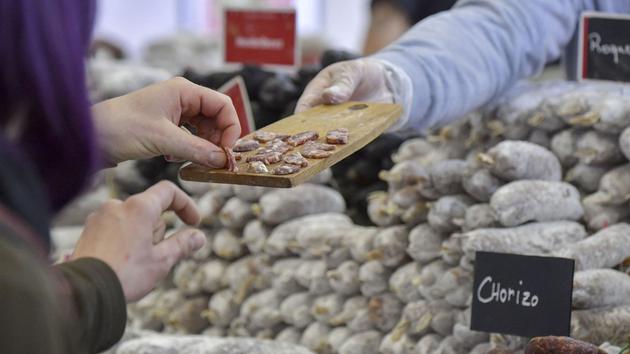Alain Bazot is President of
UFC-Que Choisir
and Didier Livio, Director of the
Citizen Food
research program
.
The 2020 law on the fight against waste and the circular economy provides for the development of an environmental score which, like the energy labeling or the Nutri-Score, could allow consumers to identify in at a glance, if the food products offered on the shelves come from polluting production methods or, on the contrary, favorable to the environment and health.
But the development of this labeling, led by the Ministry of the Environment and Ademe, seems at this stage to be very poorly underway.
The data currently available for the calculation of this score are indeed very incomplete and therefore give completely aberrant results.
The calculations of the Agribalyse database, which contains the scores of 500 raw products and 2000 processed foods, are calculated according to the Life Cycle Analysis (LCA) and are expressed per kilo of food produced, outrageously favoring intensive agriculture then. even that it is the most polluting.
In addition, damage to biodiversity, soil fertility, the health impact of pesticides and antibiotics are not or too little taken into account, which has the paradoxical effect of further disadvantaging organic farming or production. extensive.
A chicken egg in a cage or a tomato boosted with fertilizers and pesticides, would be rated better than their organic equivalents or from free-range farming.
Thus a chicken egg in a cage or a tomato boosted with fertilizers and pesticides, would be rated better than their organic equivalents or from free-range farming.
It is therefore crucial to integrate additional indicators reflecting the sustainability of agricultural practices and the entire production cycle in order to correct the glaring biases of LCA Agribalyse.
But this considerable work requires time as well as real scientific expertise.
However, rather than mandate recognized and independent scientific organizations such as INRAE, and schedule their work within a realistic timetable, the public authorities largely discard all external operators wishing to offer their own calculation methods, whether they are credible or not.
As for the timetable, it is untenable since the proposals will have to be submitted before the summer.
Worse, taking advantage of this vagueness, some private actors have recently announced that they will very soon post their own environmental scores on food products, without even waiting for the official methodology to be defined, with the risk that these “in-
house
”
eco-scores
, contribute to consumer confusion and misinformation.
To read also:
"It is time to build an ecology of France from below"
In view of this poorly assured management, we reaffirm the need for the whole process to be framed by the public authorities, closely involving civil society and in particular NGOs in the definition of indicators.
But we must be aware that the definition of the official mode of calculation will only constitute the first step of the process since it will then be necessary to tackle the precision of the data, Agribalyse giving for the moment only generic values by types of data. food.
Thus, two salads, two hams or two yogurts from the same section have the same average score, regardless of the efforts made individually by a particular manufacturer to reduce its climate footprint, promote biodiversity and progress more generally towards more products. sustainable.
Now, what is the point of this labeling if, on the one hand, it does not allow manufacturers who have made efforts to post a better score than their lagging competitors and if, on the other hand, it prevents consumers to identify the most virtuous product between two foods of similar appearance?
The environmental challenges of food deserve a precise, scientifically sound environmental score, constructed and validated collectively.
But at this stage most of the food manufacturers are far from being able to provide the data allowing to calculate the precise score of each of their products.
More than a lack of knowledge of their own processes, this lack of information actually reflects the industry's silent opposition to the implementation of the total transparency that consumers are entitled to obtain after the litany of food scandals.
Read also:
"The health crisis must be an opportunity to rebuild our food sovereignty"
To put an end to this opacity prejudicial to a healthy competition between professionals, we ask that the data of the 360,000 foods usually present on the shelves be eventually available in databases managed and controlled by trusted third parties, under the watchful eye of citizen-consumers and without being the object of commodification.
Finally, once this official Eco-score becomes more reliable, it can be linked to other dimensions of product sustainability (fair remuneration for producers, ethics of working conditions, origin of products, distribution of value, etc.), whose data will come from other initiatives, not public but collective this time, based on research and combined with the participation of the most virtuous agricultural sectors, brands and associative actors.
The intention of the official Ecoscore is good, but its concrete implementation is going to fail if it is not amended in depth.
The environmental challenges of food deserve a precise, scientifically sound environmental score, constructed and validated collectively.
It is only under these conditions that the Eco-score will allow consumers to accelerate through their purchases the urgent food transition towards sustainable development.
In short, for a real eco-score, we are still far from the mark.

